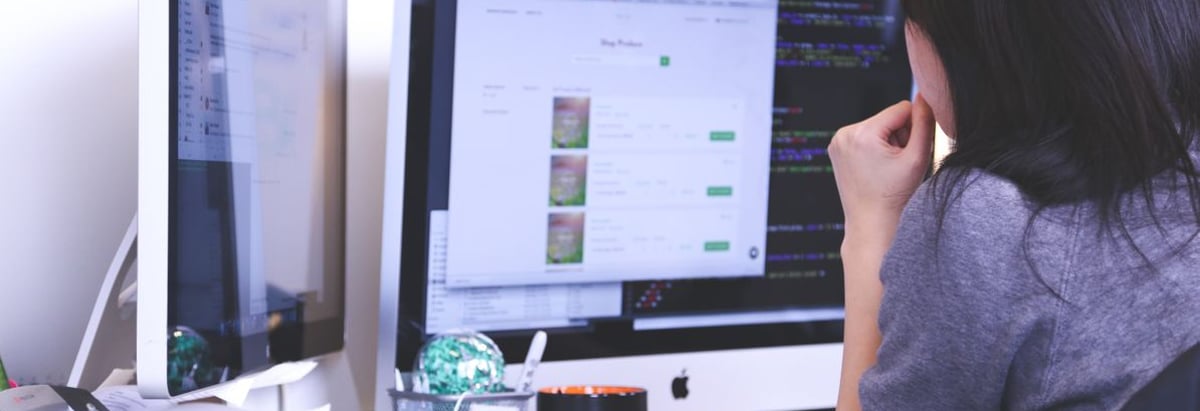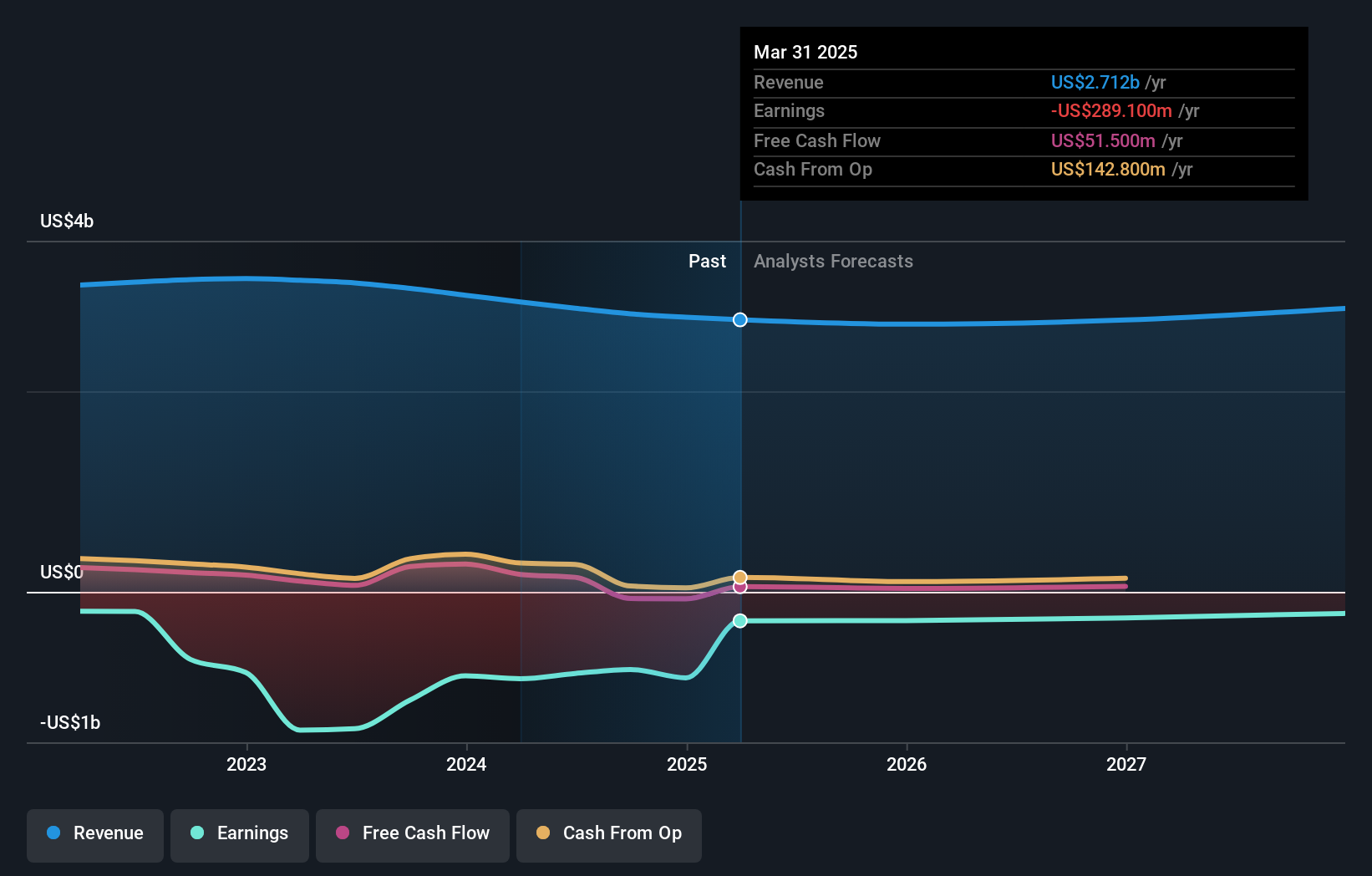- United States
- /
- IT
- /
- NasdaqGS:RXT
Rackspace Technology, Inc.'s (NASDAQ:RXT) market cap dropped US$40m last week; individual investors who hold 55% were hit as were institutions

Key Insights
- Rackspace Technology's significant private equity firms ownership suggests that the key decisions are influenced by shareholders from the larger public
- 55% of the company is held by a single shareholder (Apollo Global Management, Inc.)
- 22% of Rackspace Technology is held by Institutions
To get a sense of who is truly in control of Rackspace Technology, Inc. (NASDAQ:RXT), it is important to understand the ownership structure of the business. The group holding the most number of shares in the company, around 55% to be precise, is private equity firms. Put another way, the group faces the maximum upside potential (or downside risk).
While institutions, who own 22% shares weren’t spared from last week’s US$40m market cap drop, private equity firms as a group suffered the maximum losses
In the chart below, we zoom in on the different ownership groups of Rackspace Technology.
Check out our latest analysis for Rackspace Technology

What Does The Institutional Ownership Tell Us About Rackspace Technology?
Institutions typically measure themselves against a benchmark when reporting to their own investors, so they often become more enthusiastic about a stock once it's included in a major index. We would expect most companies to have some institutions on the register, especially if they are growing.
As you can see, institutional investors have a fair amount of stake in Rackspace Technology. This can indicate that the company has a certain degree of credibility in the investment community. However, it is best to be wary of relying on the supposed validation that comes with institutional investors. They too, get it wrong sometimes. If multiple institutions change their view on a stock at the same time, you could see the share price drop fast. It's therefore worth looking at Rackspace Technology's earnings history below. Of course, the future is what really matters.

We note that hedge funds don't have a meaningful investment in Rackspace Technology. Looking at our data, we can see that the largest shareholder is Apollo Global Management, Inc. with 55% of shares outstanding. With such a huge stake in the ownership, we infer that they have significant control of the future of the company. In comparison, the second and third largest shareholders hold about 4.1% and 2.3% of the stock. Furthermore, CEO Amar Maletira is the owner of 1.0% of the company's shares.
Researching institutional ownership is a good way to gauge and filter a stock's expected performance. The same can be achieved by studying analyst sentiments. There are a reasonable number of analysts covering the stock, so it might be useful to find out their aggregate view on the future.
Insider Ownership Of Rackspace Technology
The definition of company insiders can be subjective and does vary between jurisdictions. Our data reflects individual insiders, capturing board members at the very least. Company management run the business, but the CEO will answer to the board, even if he or she is a member of it.
Most consider insider ownership a positive because it can indicate the board is well aligned with other shareholders. However, on some occasions too much power is concentrated within this group.
We can see that insiders own shares in Rackspace Technology, Inc.. As individuals, the insiders collectively own US$15m worth of the US$356m company. This shows at least some alignment. You can click here to see if those insiders have been buying or selling.
General Public Ownership
The general public-- including retail investors -- own 20% stake in the company, and hence can't easily be ignored. While this group can't necessarily call the shots, it can certainly have a real influence on how the company is run.
Private Equity Ownership
With a stake of 55%, private equity firms could influence the Rackspace Technology board. Sometimes we see private equity stick around for the long term, but generally speaking they have a shorter investment horizon and -- as the name suggests -- don't invest in public companies much. After some time they may look to sell and redeploy capital elsewhere.
Next Steps:
It's always worth thinking about the different groups who own shares in a company. But to understand Rackspace Technology better, we need to consider many other factors. Take risks for example - Rackspace Technology has 2 warning signs (and 1 which is concerning) we think you should know about.
If you are like me, you may want to think about whether this company will grow or shrink. Luckily, you can check this free report showing analyst forecasts for its future.
NB: Figures in this article are calculated using data from the last twelve months, which refer to the 12-month period ending on the last date of the month the financial statement is dated. This may not be consistent with full year annual report figures.
New: AI Stock Screener & Alerts
Our new AI Stock Screener scans the market every day to uncover opportunities.
• Dividend Powerhouses (3%+ Yield)
• Undervalued Small Caps with Insider Buying
• High growth Tech and AI Companies
Or build your own from over 50 metrics.
Have feedback on this article? Concerned about the content? Get in touch with us directly. Alternatively, email editorial-team (at) simplywallst.com.
This article by Simply Wall St is general in nature. We provide commentary based on historical data and analyst forecasts only using an unbiased methodology and our articles are not intended to be financial advice. It does not constitute a recommendation to buy or sell any stock, and does not take account of your objectives, or your financial situation. We aim to bring you long-term focused analysis driven by fundamental data. Note that our analysis may not factor in the latest price-sensitive company announcements or qualitative material. Simply Wall St has no position in any stocks mentioned.
About NasdaqGS:RXT
Rackspace Technology
Operates as a cloud and artificial intelligence solutions company in the Americas, Europe, the Middle East, Africa, the Asia Pacific, and Japan.
Fair value with imperfect balance sheet.
Similar Companies
Market Insights
Community Narratives





